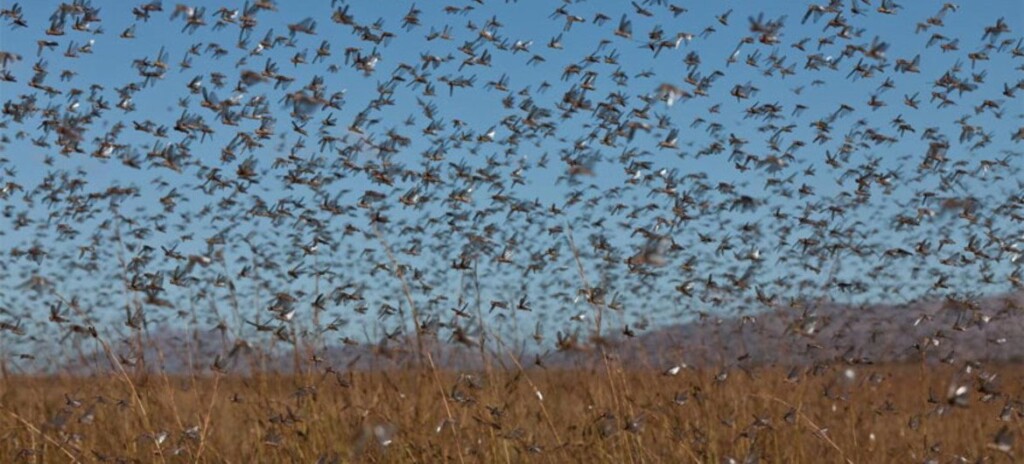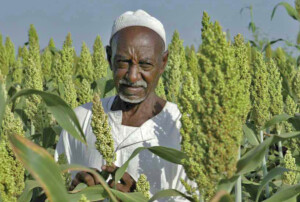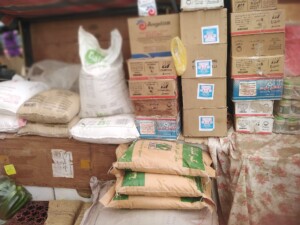Darfur farmers warn of impending famine as season falters

Swarms of desert locusts that can destroy swathes of crops in a short period (File photo: UN FAO)
Farmers in Mershing in South Darfur are warning of famine if humanitarian organisations do not intervene to provide aid. They say that the need is especially acute as the agricultural season threatens to collapse due to pastoralist encroachments by driving livestock into farms. Swarms of locusts also threaten to devastate crops in East Darfur.
The farmers complained to Radio Dabanga that herders routinely drive livestock into their farms, which destroys agricultural crops. “There are no security officers or policemen anymore to intervene to keep the cattle away from the farms,” a farmer said.
“The Rapid Support Forces (RSF) are stationed in the locality and have occupied the police office in the town of Mershing,” he explained. “They have also opened an office for levies at the Mershing Grand Market.”
Transport of people and goods from Mershing to other areas in South Darfur is carried out by convoys consisting of RSF paramilitaries and allied gunmen, he said, and people must pay a sum of money for the convoy back and forth.
Farmers in Abu Hamra in Mershing also complain about the spread of the locusts in the area. The locusts caused significant damage to the farms, especially the peanut crops, they told Radio Dabanga.
Residents of Abu Hamra and Manawashi called on humanitarian and national organisations and charities to place the two areas among the areas in need humanitarian aid.
Low peanut prices
A number of farmers in East Darfur complain about low prices of the peanut crops at the beginning of the harvest season.
Farmer Ismail Osman described the prices of peanuts as “extremely low and without comparison to the cost of production, while the prices of other consumer goods are soaring”.
He called on crop traders to take into account the difficult living conditions of farmers and make fair prices commensurate with production costs, which contributes to reducing the burdens of living.
Farmer Hamza Yousef confirmed that the war between the Sudan Armed Forces (SAF) and the RSF that broke out on April 15 has greatly affected the buying and selling of agricultural crops, especially peanuts.
East Darfur is one of the largest peanut-producing areas in the country and agriculture is the main economic activity for most of the region’s population, as it has become a destination for national capital to buy peanuts as one of Sudan’s export crops.











 and then
and then